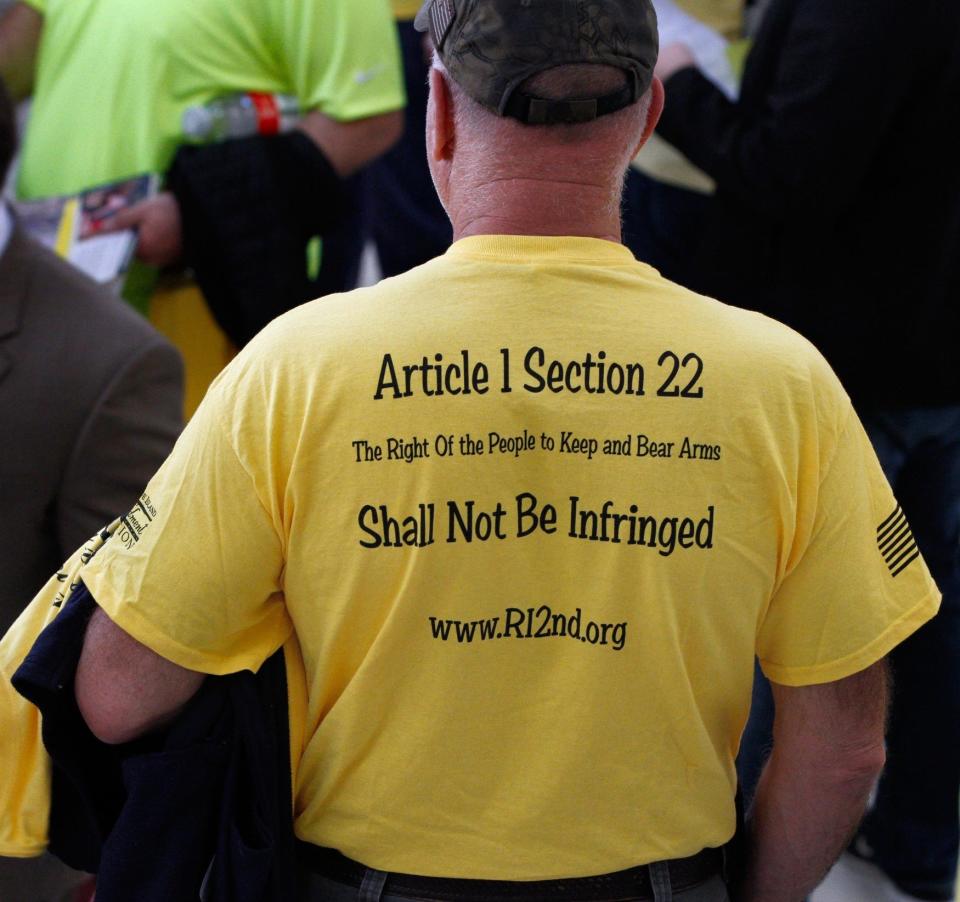Right to bear arms ingrained in US, state constitutions | Opinion
Ken Kossak, a gun enthusiast and strong proponent of the Bill of Rights, lives in Portsmouth.
In response to the column "Why must we wait for stricter gun control bills?" (Commentary, Feb. 10) and to our state lawmakers and congressional delegation, a few thoughts to ponder:
We fought a revolution against a tyrannical monarchy. Our founders were deathly afraid of an overly powerful centralized government. So, let’s not lose sight of the fact that the first 10 amendments were ratified in 1791 for a very specific purpose. Freedom of speech, freedom of religion, the right to assemble and petition the government, the right to gather as a militia and to bear arms uninfringed, freedom from unreasonable searches and seizures, right to a speedy trial, right to a trial by jury, etc. All ratified to protect you from your own government.
More: RI looking to build understanding of firearms: Free intro class draws diverse crowd
Let’s start with the Second Amendment of the U.S. Constitution, ratified Dec. 15, 1791.
"A well regulated Militia, being necessary to the security of a free State, the right of the people to keep and bear Arms, shall not be infringed."
If the arms were only intended for a militia, why didn't our founders, the ones who wrote the amendment, make an attempt to "ban weapons" in 1792, 1800, 1820, during their lifetime? Also, there were some deadly weapons in 1791 which in those days could have been defined as “assault weapons,” yet no mention of the types of arms that can or cannot be infringed.

If the people's right to bear arms is infringed, other than storming the Bastille, what's the plan for arming this militia?
Then, to the Rhode Island Constitution, Section 22, effective in May 1843: "The right of the people to keep and bear arms shall not be infringed."
Yes, this was actually written into the Rhode Island State Constitution. And notice it’s 52 years after ratification of the Bill of Rights, no militia mentioned.
More: An 'outstanding example': Attorney general say arrest is proof gun laws are working
Considering that both the federal and the state constitutions forbid the infringement of our right to keep and bear arms, I question how "a majority of our state legislators and all five statewide officeholders" can "support a ban." I would think their support to "infringe Arms" would be a blatant violation of their oath to support and defend the constitution.
Fortunately, our forefathers put procedures in place to change the constitution. It's an intentionally high bar: a two-thirds vote of both Houses of Congress, or, if two-thirds of the states request one, by a convention called for that purpose. The amendment must then be ratified by three-fourths of the state legislatures, or three-fourths of conventions called in each state for ratification. Bingo, the Second Amendment is repealed. At that point changing the state constitution will be much easier. Once both constitutions no longer protect the right to bear arms, then, and only then, can you constitutionally vote to ban "assault weapons."
And while we're on the subject, what exactly is an "assault weapon"? The definition seems to be very subjective, changing with every person I talk to. Similar to what Justice Potter Stewart said of obscenity in 1964 ("I know it when I see it"). But that could be a discussion for another day.
Make no mistake about it though, your goal is not to ban "assault weapons." Your goal is to ban all weapons. Let's be honest here.
This article originally appeared on The Providence Journal: If the people's right to bear arms is infringed, other than storming the Bastille, what's the plan for arming a militia?

